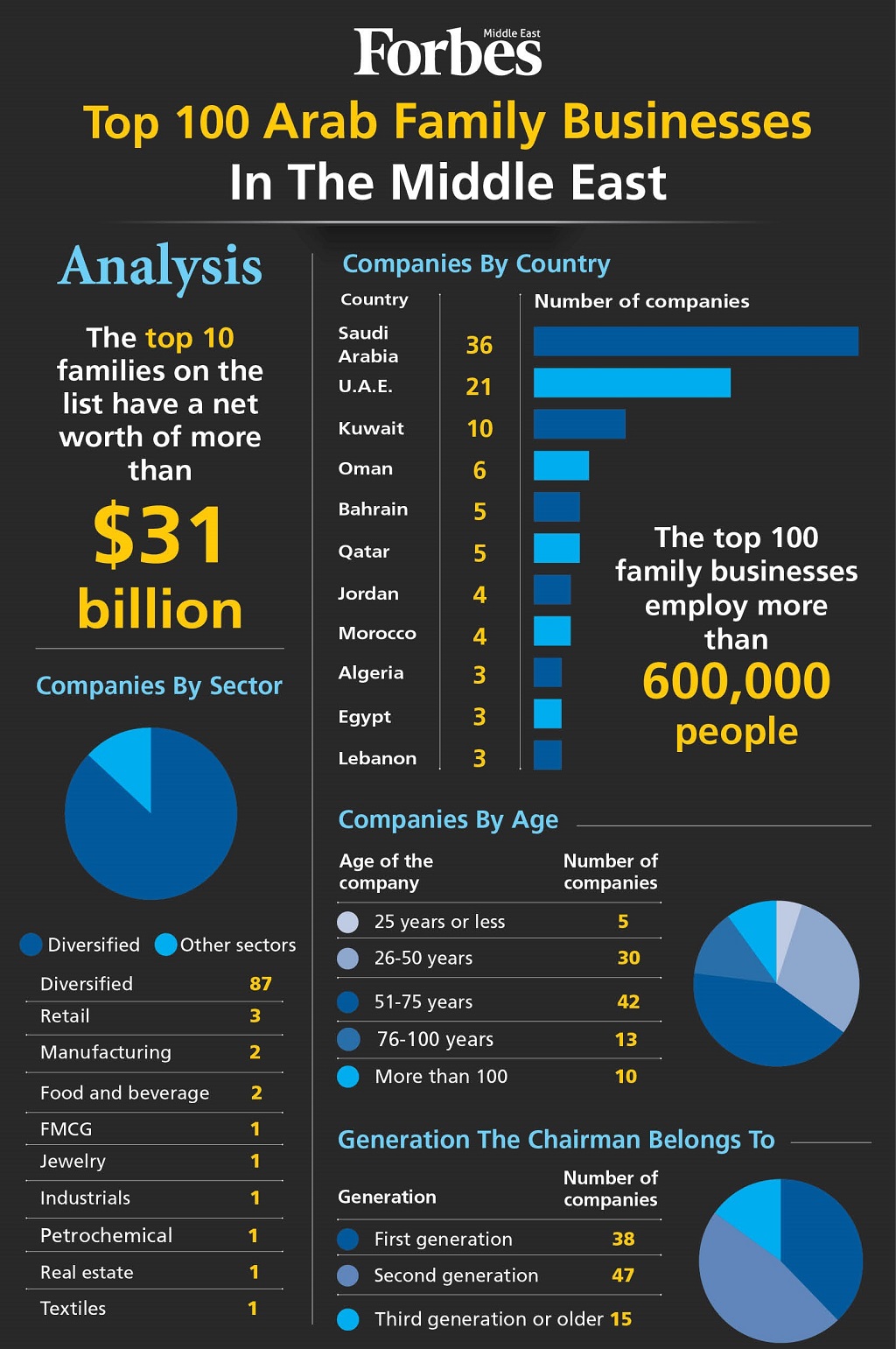Doing business in the Middle East often be a family-run business, as about 90% of the businesses in the Arab estates is a family businesses or at least a family controlled.
According to the Center for Family Business at University of St. Gallen, of the 500 largest family businesses on the planet 13 or 2.6% are located in Middle East states.
The family businesses affects the Middle East economic, contributing 60% of GDP and employing more than 80% of the workforce.
Family businesses have many advantages:
- They’ve a long-term view of the business
- They can adapt to the market’s changes quickly
- They can benefit from doing business with government-owned companies
Also, these families on the list have:
- A net worth of more than $31 billion
- Employees more than 600,000
Top 100 Arab family businesses’ analysis
According to Forbes Middle East Top 100 Arab Family Businesses’ report, Saudi Arabia came in the lead with 36 family businesses, followed by the UAE with 21 entries on the list, and in third place came the region’s most populous country, Egypt, with only three family businesses on the list.
Most of the companies have been passed down through at least one generation, with 10 companies more than a century old, and 13 formed between 75 and 100 years ago. Other companies look younger due to:
- Divide the business between the members
- Consolidate different investments into one holding company
Most of the companies are working on the diversified sectors.
According to the Forbes Middle East report’s key facts:
- Mansour Group “in the top of the list” is one of the largest distributors of General Motors Group and has investments in technology companies such as Spotify and Uber. The net worth of the Mansour group “running by 3-brothers” is $7.4 billion.
- Al-Futtaim group which owns 100% of the Arab Orient Insurance Company, and 50% of Emirates Investment Bank, in addition to several investments in car agencies, real estate, and building materials. It’s a net worth of $2.1 billion.

Methodology
According to Forbes Middle East, looked at approximately 200 Arab family-owned businesses in the region. They considered:
- Group investments in regional and global stock exchanges and real estate assets.
- Business diversification and the number of sectors in which they have significant operations.
- Types of business activity and to what extent they have been affected by this crisis.
- Number of employees.
- Number of countries they are present in and geographical diversification.
Date of establishment
Top Arab family businesses list
| Rank | Company | Country | Sector | Establishment | Chairperson |
| 1 | Mansour Group | Egypt | Diversified | 1952 | Mohamed, Youssef, Yasseen Mansour |
| 2 | Al-Futtaim Group | U.A.E | Diversified | 1930 | Abdullah Al Futtaim |
| 3 | Olayan Group | KSA | Diversified | 1947 | Hutham Olayan |
| 4 | Majid Al Futtaim | U.A.E | Diversified | 1992 | Michael Rake |
| 5 | Rashed Abdul Rahman Al Rashed & Sons Group | KSA | Diversified | 1950 | Abudlaziz Al Rashed |
